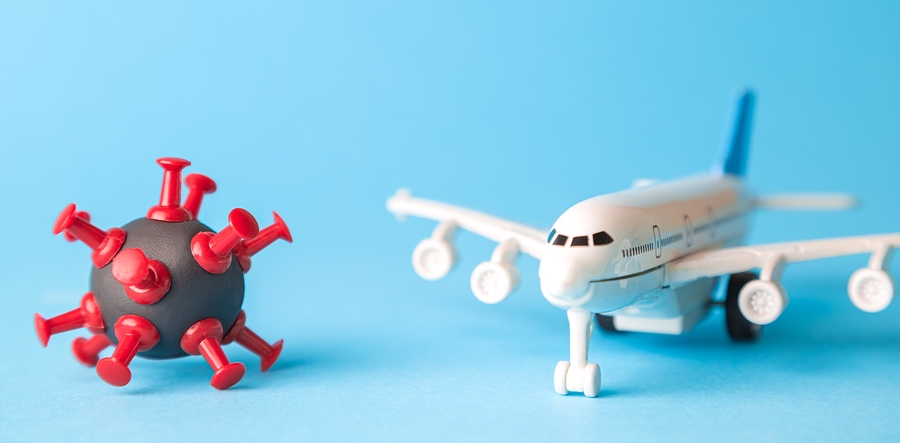Worldwide, the impact of coronavirus on the aviation industry is expected to be more devastating than the aftermath of the September 11, 2001 attacks. What should workers in the sector prepare for?
With people arriving by air to Canada being tightly controlled, international events being cancelled one after another and tourist spending around the world melting like snow under a tropical sun, the Canadian aviation industry is entering hard times.
Layoffs at carriers… and beyond
The Canadian government’s restrictions on passenger air transport, currently limited to returning Canadians and transport of goods, have already resulted in the disruption of many air routes.
Air Canada, WestJet and Air Transat have all announced the suspension of most of their international flights in the coming weeks. WestJet will also reduce its domestic flights. Layoffs are therefore expected by carriers, both of crew and ground staff.
In a press release, the Quebec carrier gives an overview when it says “temporary layoff measures, reduction of working hours or reduction of wages which will unfortunately affect a significant part of employees.”
“The reduction is catastrophic. It far exceeds the post-9/11, the crisis of 2008, the SARS and H1N1 flu crisis,” says Mehran Ebrahimi, associate professor at UQAM’s School of Management Sciences and director of the Aeronautical Business Management Task Force.
These employment contractions also affect the staff that foreign airlines, such as Air France, KLM and others, hire from us, for aircraft maintenance, cleaning between flights and customer service at airports, in particular. “For every plane that doesn’t fly, a total of 100 to 130 people are out of work,” said the aviation management expert.
Aircraft builders and equipment manufacturers also affected
At the same time, in Europe (at Airbus, among others), the epidemic is limiting the production capacity of aircraft builders and aviation equipment manufacturers, due to the containment measures imposed in several European countries, including France.
But the effects of COVID-19 could be felt for a few years. The negative impact of the pandemic on the financial situation of airlines is likely to cause demand for aircraft and parts to decline.
If Air Canada and other airlines postpone the delivery of the A220 aircraft (the former Bombardier CSeries) they have ordered, as Mehran Ebrahimi expects, OEMs such as Pratt and Whitney (which manufactures the A220 engine) and their own suppliers will in turn be in trouble.
“Aircraft are manufactured on demand and follow a precise production schedule,” explains the professor. “When an order is postponed, this entire sequence is disrupted. The entire supply chain is affected.”
The aviation management expert believes that government investment will be essential to support this important sector of the Canadian economy, which accounts for approximately $13 billion per year.
